For Oklahoma City residents, building the tallest tower in the United States sows doubts
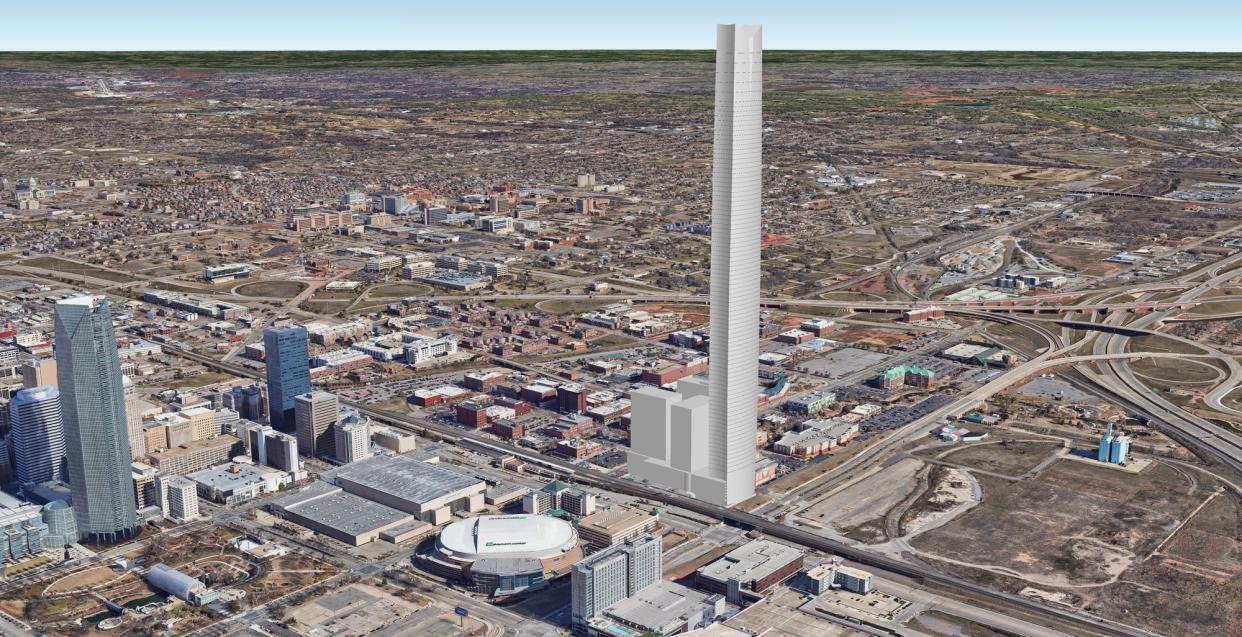
In a daring move that’s shaking up one city’s skyline, Scot Matteson is aiming for the stars with his latest development proposal — which aims to be the tallest tower in America.
It’s planned for an unlikely city: Oklahoma City.
And last week, Matteson’s team faced the scrutiny of the city’s planning commission, pitching an alteration to his ambitious project that’s slated to rise on a parking lot snug against railroad tracks, embracing the perimeter of a U-Haul storage facility.
Gone are the modest blueprints: Instead of capping the buildings at a reasonable 345 feet, Matteson now envisions one soaring to a dizzying 1,907 feet — an architectural marvel that would more than eclipse even the loftiest structures in town.
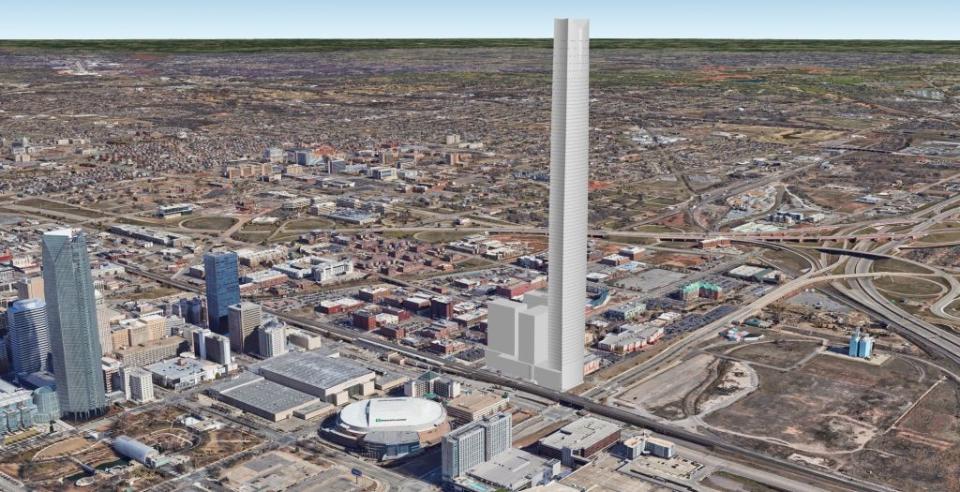
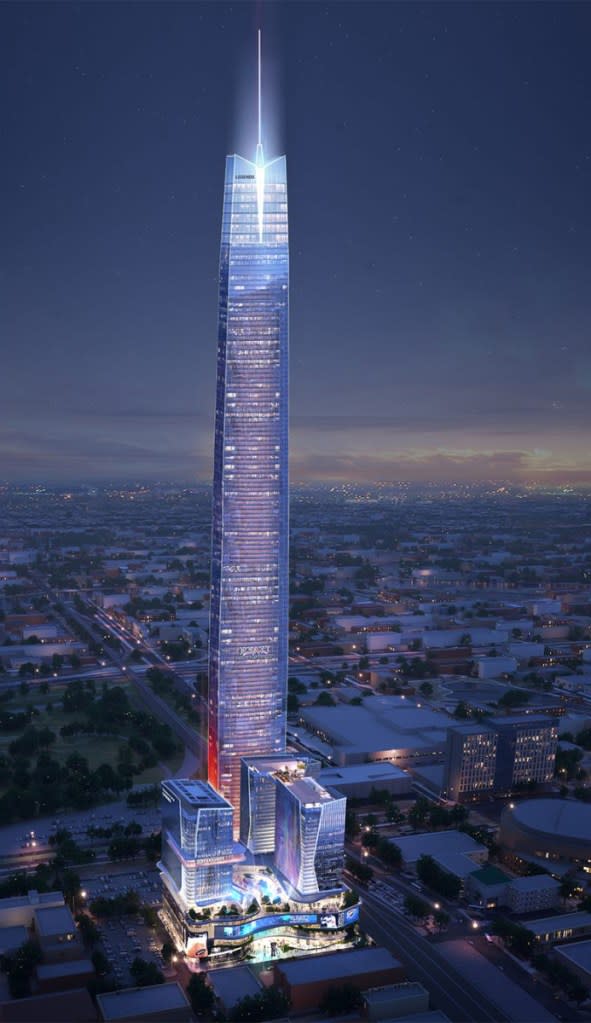
“We figure it would be iconic,” Matteson told the Wall Street Journal. Matteson, for his part, is the California developer who briefly flirted with tabloid fame for his dalliance with a Real Housewife of Orange County, Shannon Beador.
Dubbed as the Legends Tower, this behemoth has ignited a flurry of imaginative nicknames, from the cheeky “Redneck Burj Khalifa” to the futuristic “Jetsons Meets Las Vegas.”
Expected to be taller than New York’s 1,776-foot One World Trade Center, who would have guessed the tallest building in America would be constructed in a place referred to as “where the wind comes sweepin’ down the plain?”

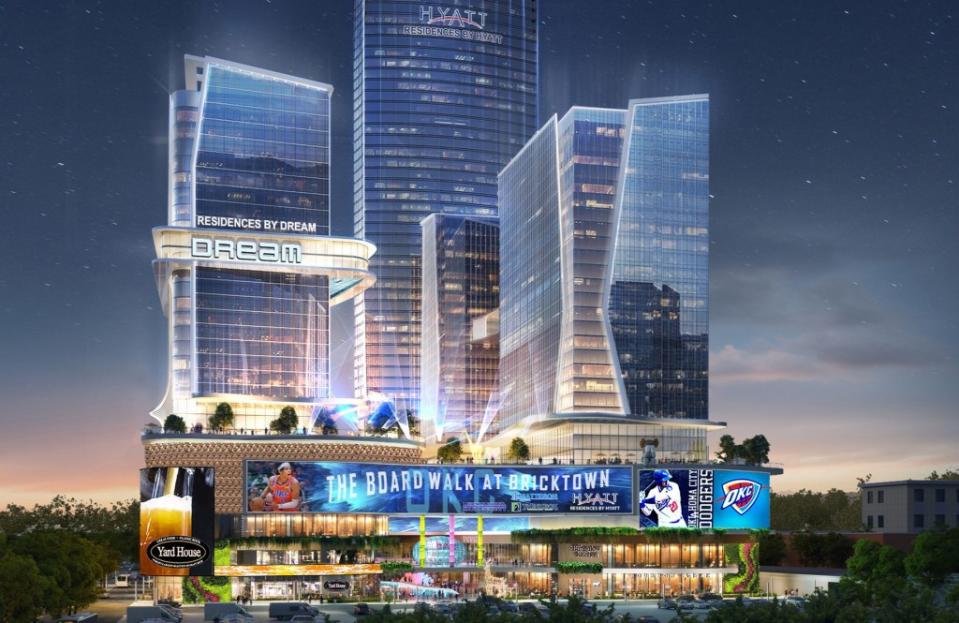
That said, locals are torn between awe at Matteson’s vision and skepticism about its feasibility in a region famed for its windswept plains.
Nevertheless, Matteson remains steadfast in his conviction that the 134-story residential tower is viable. While he assures the public of full financial backing, details of his backers remain unknown.
Still, amid the buzz, concerns linger, especially about the weather. Chairman Camal Pennington, voice of reason on the Planning Commission, echoed the doubts of many.
“I’ll ask you the question that many people ask me every time this project comes up: ‘How are you intending to build a tower this tall in the wind and storms and tornadoes we have in Oklahoma City?’” the Journal reported.

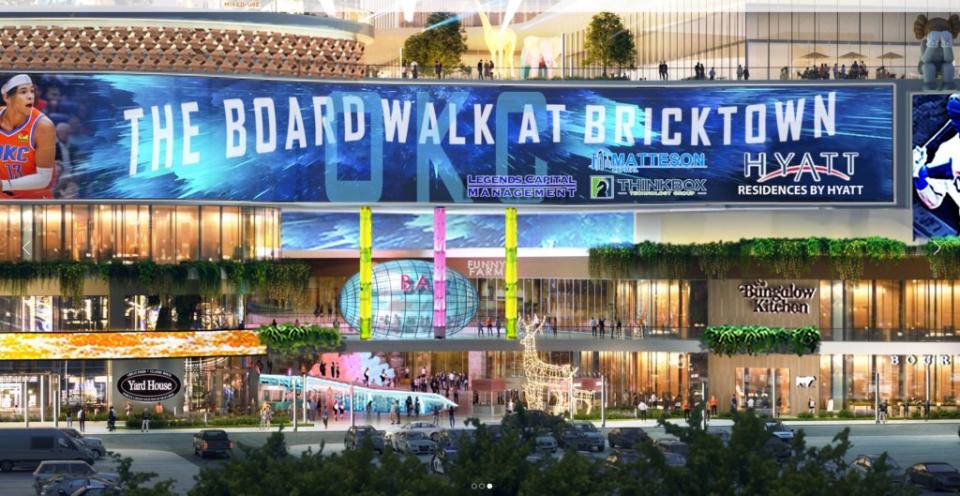
Enter Rob Budetti, managing partner of AO, the project’s architect. With unwavering confidence, Budetti outlined plans for a fortress-like structure, complete with concrete walls up to 6 feet thick encasing the elevator shaft, and tornado-resistant windows that defy nature’s fury. “It’s probably one of the safer places to be,” he reassured skeptics.
“I don’t know if you’ll find me at the top.” Pennington quipped in response.
As discussions unfolded at City Hall, the commissioners had already greenlit zoning for a humble car wash for tractor trailers before grappling with the grandeur of Matteson’s brainchild, aptly dubbed a Simplified Planned Unit Development, or SPUD.
Following an hour-long deliberation, they ultimately advised the city council to greenlight the removal of height restrictions for the $1.6 billion, four-building endeavor.
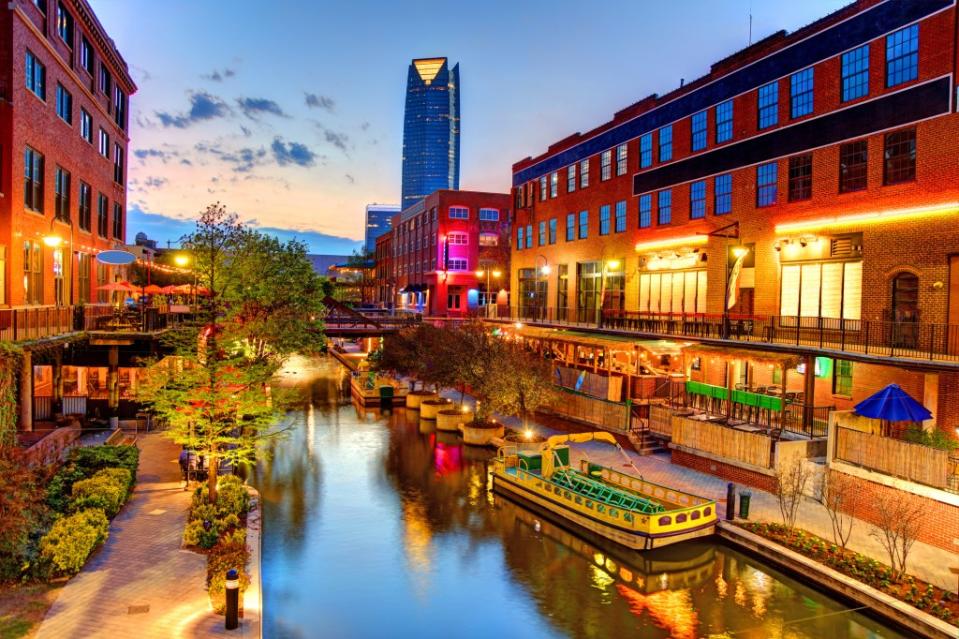
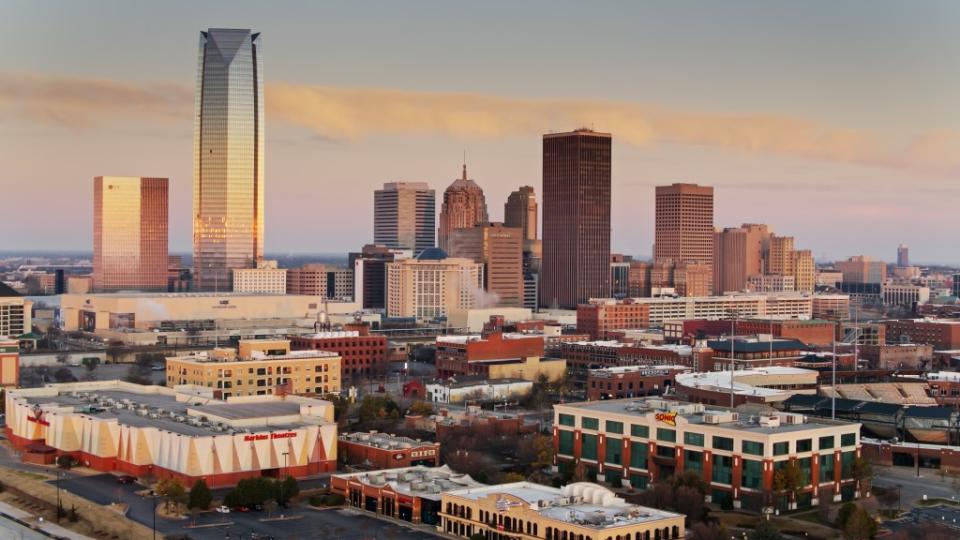
This ambitious project encompasses not only towering structures, but also features such as a lagoon and a boardwalk, set amid a backdrop of restaurants and entertainment venues. (Pennington, though admitting to a fear of heights, expressed his fervent hope for the project’s realization.)
But this did not prevent prominent figures on social media from attacking the project.
“LMAOOOOO,” tweeted Hayden Clarkin, known as the Transit Guy on X, formerly known as Twitter, and is a transportation consultant in New York.
“If you talk to 1,000 Americans and say, ‘Where do you think the tallest building in America should be?’ I don’t think anyone would pick Oklahoma City,” he said.

